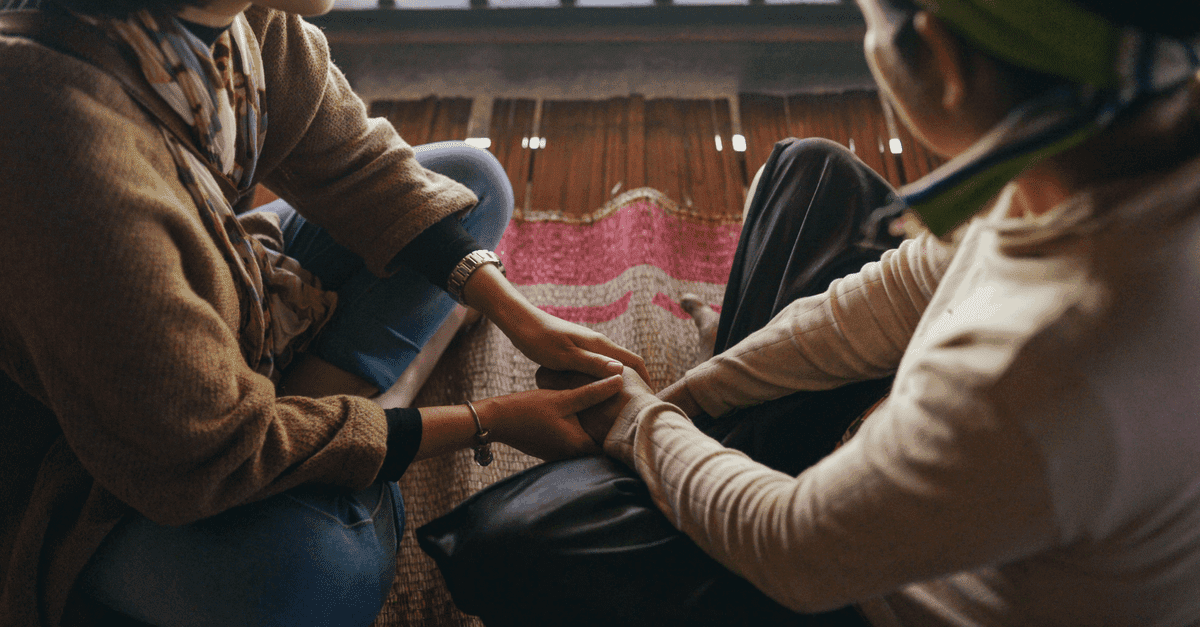Don’t want to be the only person in the room who doesn’t understand the soon-to-be released Modern Slavery Act? Neither did we, so we caught up with the experts – who are also our South Melbourne neighbours – Hagar Australia. The information and insights that CEO Jo Pride shared with us were a mix of the powerful and the practical, which are relevant to individuals and businesses, both large and small.
Our four key takeaways from our conversation with Hagar Australia are:
1. A horrifyingly high number of people are in slavery – estimates suggest approximately 40 million around the world. Industries where slavery can be an issue include agriculture, garment manufacturing, cotton and chocolate production, tea, coffee, sex work and fisheries.
2. This month, the Australian Government is due to release the Modern Slavery Act, which is expected to be passed by the end of 2018. As a result, around 3,000 Australian companies will be required to report at Board level on the due diligence steps that they are taking to identify and address slavery in their supply chains.
3. Individuals have an important role to play in combatting modern slavery. As an individual, a couple of actions you can take include: spreading the word i.e. letting others know that the issue exists; and making ethical decisions when purchasing goods and services.
4. Businesses also have a critical role to play – transparency is key. In general, the first thing to do is map and publicly communicate your supply chain. Typically, this is no easy task because supply chains are becoming increasingly complex. Regardless, understanding the lie of the land is vitally important to identify and ultimately address modern slavery.
This is only the tip of the modern slavery iceberg. To delve deeper, read on for our full interview with Jo…
What is modern slavery, how prevalent is it and in which industries is it most common?
There are around 40 million people in slavery in the world today. It can take many forms – it might look like forced marriage of a child or it might be someone in domestic servitude. When you speak about slavery, the industry that comes to mind for most people is the sex work industry. However, that is actually a minority of people in slavery globally – it accounts for around 20%. Other industries where slavery can be an issue are agriculture, garment manufacturing, cotton and chocolate production, tea, coffee and fisheries.
Does modern slavery happen in Australia?
One of the challenges with human trafficking and slavery is that it often happens behind closed doors. This makes it genuinely difficult to measure and predict the numbers accurately. At the moment, there is a lot of research being conducted, which suggests that around 4000 people in Australia are affected by this issue. We live in the hotspot of slavery because two thirds of people in slavery live in the Asia Pacific. Given our location in the region, this gives Australia a particular position of responsibility. In addition, the goods that we consume – and their development, production and supply – have ramifications well beyond our borders.
Can you please tell us about the Australian Modern Slavery Act?
Last year, the Australian Parliament conducted an inquiry into whether Australia should introduce a Modern Slavery Act. The committee produced a compelling report, which emphatically stated that we absolutely should introduce an Act. Subsequently, the Australian Government announced that a Bill will be released in the middle of 2018 and is expected to be passed by the end of this year.
As we haven’t seen a draft of the Bill, we don’t know the exact details of it. On the other hand, there has been significant information about what it will entail. We know that it is likely to apply to companies that have an annual turnover of AU$100 million or more. This is a higher threshold than in the UK Act, where the annual turnover is GBP 36 million. Regardless, in Australia, around 3,000 companies and organisations will be subject to the terms of the Modern Slavery Act, requiring them to report at Board level on the due diligence steps that they are taking to identify and address slavery in their supply chains.
It is vital that we don’t create a context where companies are fearful if they find slavery in their supply chains. We want organisations to find slavery – only then can they address it. So, creating the right culture around the Modern Slavery Act will be very important. We should assume that there is slavery in supply chains and encourage transparency, identification and action. The Act is not a panacea for ending global slavery but it will require some of the most powerful boardrooms in Australia to talk about the issue, potentially for the first time ever.
Might the Modern Slavery Act be extended to other organisations?
Those discussions are certainly being had and there is potential for the threshold within the Australian Act to be lowered down the track. For the time being, there will be the opportunity for companies below the threshold to voluntarily report. As more and more Australians become aware and momentum gains, we anticipate that expectations will change with consumers increasingly demanding information and transparency on this issue. It’s great to see a shift and an increase in the dialogue about modern slavery, and cultural change underway.
Now that we have a better understanding of modern slavery and the Australian, who are Hagar and what work are you doing in this space?
Hagar started in Phnom Penh 24 years ago. We work with women and children who have been trafficked, enslaved or severely abused across Asia. All of our work is in post-conflict countries and we support people to re-build their lives after deep trauma. In Australia, we’re the only organisation entirely focused on addressing slavery, trafficking and abuse that complies with the standards of the Australian Council For International Development.
Often, the conversation about slavery is about harrowing stories, which stop at the moment people are freed. That is where Hagar’s work starts. When people have been sold or are in slavery, each one of those individuals has a deeply traumatic experience. Recovering often takes a very long time and highly professionalised support, such as a safe place to live, legal support to give evidence against perpetrators, trauma counselling and opportunities to catch up on school, learn skills and get a job. Recovery can take two years, 12 years or a lifetime. We’re there to help people get back on their feet, no matter how long it takes.
What can individuals do to combat modern slavery?
Firstly, the more people who are aware about modern slavery, the more we reach a tipping point as a generation that says we are not going to stand for this anymore. So, an action that we can take as individuals is to speak with our families and friends. We can tell people that slavery exists today and that it’s very real and very widespread. We can also try to make ethical decisions when purchasing products. It’s not necessarily about boycotting a product or brand but contacting them to say that you care about this issue. When an organisation receives an email, letter or call from a consumer that speaks to their values and buying preferences, they take that really seriously.
What can businesses do to combat modern slavery?
The UN has a global framework on business and human rights, which means that companies have a responsibility to protect, respect and remedy human rights. Obviously, we want organisations to be doing whatever they can to identify slavery in their supply chains and then address it. That can be complex – you might have a strong, close relationship with a factory that manufactures your products but perhaps not with the second or third level down in the supply chain. It’s really about starting and continuing on the journey.
When it comes to remedying modern slavery, it’s about thinking carefully about what we do when businesses uncover human rights abuses. Our advice for this stage is to be aware of the deep trauma that can be associated with these human rights abuses and the time it can take to rebuild a life. Identifying and working with a reputable partner organisation can be really helpful for companies at this phase in the journey.
What can business do now to ensure they are prepared for the coming changes?
The first step for most companies is transparency. That means mapping and communicating their supply chains and including them on a company website. It’s also about transparency in the challenges that companies are facing. We’re finding that businesses are increasingly willing to speak up because it demonstrates they are taking their responsibilities seriously. Another thing that organisations can do is start having the conversation at Board level because the reporting will need to come from there.
What resources would you recommend for people who want to learn more about this?
For a compelling consideration of why Australia needs a Modern Slavery Act, you can’t go past Hidden in Plain Sight – the report of the Parliamentary Committee. The Global Slavery Index is also an incredible resource, and a new version is due for a release this month. It’s also well worth reading the UN Global Compact’s resources for businesses, including And we have lots of information available on our Hagar website.

